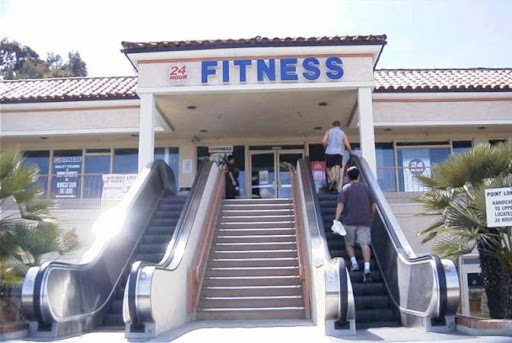I grew up in rural-suburbia. Unincorporated King County. Winding roads in the foothills. Just off Highway 18. Covington, WA. There were signs protesting the development. "Don't turn Covington into the next Federal Way." Have you been to Federal Way? Strip mall after strip mall. Huge streets. Design that discourages walking. Encourages driving. Running errands becomes a series of hopping in and out of one's gas-guzzling vehicle. You hop into your car to drive 15-20 minutes to the nearest gym.
It's this classic:

(Not actually taken in Washington State, but you get my point.)
Covington now has its own Wal*Mart. And Costco. And Petco. I go there now and think about how different my school years would have been. Even more consumerism. More of an addiction to coffeehouse coffee. I do appreciate the additional third places. I will not deny that there is beauty in the rural nature of a place like Covington. But in the same beauty, there are design aspects that I do not appreciate. My neighborhood didn't have sidewalks or streetlights. Nearby neighborhoods were generic and the definition of sub-urbanity.
Whenever we came into Seattle, whether for a field trip, to see a play, or to show some family visitors the sights - I fell in love with her just a little bit more.
I choose to live here now, in an urban setting. I am inspired daily by the chaos. The variety. The choices.
I choose to share my backyard with my neighbors.
And Seattle has nature. Our (unfortunate) city slogan is metronatural. Last week was a perfect example of this. A friend, her brother and I went for a hike. In the snow.
About half an hour outside of the city. Fresh air. Beautiful. And I still got phone reception. Posted this to Facebook:

(My attachment to technology is another issue altogether!)
And this is where I do agree with the article. The fresh air was rejuvenating. The natural sights were refreshing. It cleared my head. It was quality. Social and yet full of quiet solitude.
I love nature and this is why I live in Seattle.
Last year alone I was able to camp on Camano Island, on the coast, at Mt. Rainier national park and spent a weekend in a cabin in Leavenworth. I took 3 snowboarding lessons. (Although have decided with the new mortgage to stick with cheaper sports like hiking and snowshoeing.) I've been taking public transportation and walking more - especially after moving.
Beyond the proximity to so much natural beauty, Seattle is adorned with some amazing park infrastructure. Frederick Law Olmsted is referenced in this article. John Olmsted left his own legacy in Seattle.
When a friend I met this year talked about walking her dog around Greenlake, I suggested she try Discovery Park.
From Seattle Sketcher.
She loved it. So did Hops (her dog. She's a beer-aficionado - the name is perfect.) Trails, beaches, solitude. All in the city.
Beyond major parks, Seattle has beautiful tree-lined streets - over 130,000 trees in the city's inventory.
It's planning like this that gives us the best of both worlds in Seattle.
...the very same urban features that trigger lapses in attention and memory -- the crowded streets, the crushing density of people -- also correlate with measures of innovation, as strangers interact with one another in unpredictable ways.
Like yesterday, when a homeless woman told me she'd tell me how to make a fire hydrant. Her words,
"You get a piece of paper. I think they call is a schematic. Then you get some wood and you make an X. Then you make it with that... what do you call it... the hot thing. It's really hot. But that's how you make a fire hydrant."
The key, then, is to find ways to mitigate the psychological damage of the metropolis while still preserving its unique benefits.
Take long walks. Get away for the weekend. Visit your closest parks. Breathe slowly and find the quietest streets in the busiest neighborhoods. And the busiest streets in the quietest neighborhoods. Plant a tree. Volunteer outside. Play. The city offers you anything and everything. Don't be overwhelmed by it. Embrace it. Consciously choose not to get swept up in the distractions. Leave your house without your wallet. Or iPod. Or cell phone. Just take it in. Find solitude within the density.
Fall in love with her all over again.



Great blog! I agree with you about the poor planning of many suburbs. I can hardly bear the thought of living "further out," even though the more familified I get the more I understand that kind of car-focused planning. Sigh.
ReplyDelete